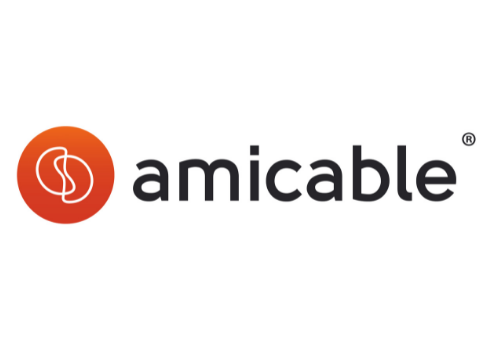Divorce and cryptocurrency: a guide to cryptocurrency on divorce (England & Wales)
If you’re currently going through divorce (or dissolution) proceedings and you’re planning on formalising your financial arrangements through a financial remedy order or consent order, you’ll need to disclose everything you have in order for the court to judge whether it's been separated fairly. So how does cryptocurrency factor into this?
As I’ll explain in more detail below, cryptocurrency is a digital currency and is therefore classed as an asset. I’ll briefly explore what cryptocurrency is and how it relates to financial settlements on divorce, implications of this, some potential red flags, and places to find additional help.
What is cryptocurrency?
In its simplest terms, cryptocurrency refers to digital currency, which is an alternative form of value created using encryption algorithms and without the need for third-party confirmation (ie. a bank). This is also often referred to as being ‘decentralised’. Rather, than a bank verifying that someone has enough funds for a purchase, cryptocurrency is based on peer-to-peer transactions. These occur through sharing ‘wallet IDs’ connected to ‘digital wallets’ which are used to store cryptocurrency. Digital wallets can be stored on mobile phones or computers and can be used to buy commodities.
Cryptocurrency transactions are documented through something called the ‘blockchain’, with each new transaction representing a new ‘block’ hence its namesake. A record of these transitions is held permanently through a complex network of computers, making it impossible to manipulate. In other words, it’s a digital ledger that no one can change.
As another form of payment, anyone can buy or sell cryptocurrency or can send or receive it. However, they must have access to an account that supports digital currency transactions (digital wallets). Whilst the assumption is often that cryptocurrency is privacy-focused, and therefore anonymous, every transaction is recorded on the blockchain, which is visible to anyone. Cryptocurrency can also be obtained through a process known as ‘mining’. This is problematic as it’s then difficult to render where it originally came from.
There are essentially two markets for cryptocurrency:
- The traditional exchange approach is where you buy and sell assets through a regulated entity like Coinbase.
- The decentralised marketplace.
The most well-known types of cryptocurrencies are Bitcoin and Ethereum, however, there are countless more that enter the market daily.
Cryptocurrency is renowned for being extremely volatile in terms of its abrupt fluctuating value. There can be a lot of variety, particularly given the recent birth of ‘non-fungible tokens’ (NFTs) and equity-based projects.
Before I explore the implications of divorce and cryptocurrency, I will briefly outline how finances are typically dealt with in a financial settlement during or after divorce processes.
What is a financial settlement when it comes to divorce?
If you are planning on getting divorced, there are typically three things you need to sort out:
- The divorce: this is procedural and involves submitting the legal paperwork necessary to finalise your divorce.
- Child arrangements: these can be made informally between the couple and acknowledge what will happen with your children once you separate.
- Financial arrangements: these can be formalised once divorce proceedings have reached the Conditional Order (formerly known as the Decree Nisi) stage and refer to the divorce financial settlement.
The divorce:
In order for your divorce to be finalised, you need to have completed and submitted the divorce application. If you made a sole application or your divorce was issued before the introduction of No-fault divorce (April 6th, 2022), you will need to wait until your spouse has returned the acknowledgement of service form before proceeding.
After the 20-week reflection period built into the No-fault system, you can submit your Conditional Order (formerly the Decree Nisi) application, once granted you will receive a certificate stating you are entitled to divorce.
At this point you can submit a consent order (optional) and then six weeks and one day after the Conditional Order (Decree Nisi) pronouncement date, you can submit your Final Order (formerly the Decree Absolute) application. Generally, no court attendance is necessary and you can make your application for divorce online.
Once you have received your Final Order (or Decree Absolute) certificate, you are legally divorced. However, you may wish to formalise your financial arrangements prior to this.
Child arrangements:
There is no requirement to formalise your child arrangements , and in general, couples are encouraged to resolve these matters between themselves rather than involving the court. If there are disputes that cannot be resolved with the assistance of a Divorce Specialist or mediator, then a court application can be made, and a judge will ultimately determine the arrangements.
Financial arrangements:
This refers to dividing the matrimonial assets between you to determine who gets what in a fair manner. These are usually formalised through a consent order (if you agree), or via determination by a Judge at court (if ultimately you cannot agree). You can get help making these arrangements through coaching or mediation.
Why do you need to formalise your financial arrangements?
Whilst it is optional for couples to formalise their financial arrangements through a consent order, it’s important to note that divorce doesn’t prevent financial claims in the future. If you finalise your divorce and then win the lottery the very next week, there remains the risk of a claim against you by your ex-spouse. A financial court order will usually contain a clean-break clause that prevents future claims (outside of those agreed upon in the terms of the order).
Another point to consider is whether you wish to share your pension. Without obtaining a financial order, a pension share would not be possible. You can read our guide on pensions or our pension sharing order FAQs for more information.
Speak to a Divorce Specialist
Book a free 15-minute call with an amicable expert. Understand the process, how long it may take, how much it can cost and what your options are.
How is cryptocurrency handled in divorce financial settlement?
In short, cryptocurrency represents a new asset class. The usual starting point for the division of assets is a 50/50 split, however, there may be reasons why a couple depart from this. Traditionally, if a couple is formalising their financial arrangements through a consent order, it is at their discretion how they wish to split their assets, such as property or pension, however, the court needs to assess whether this has been fairly decided.
What is a consent order?
You can submit a draft consent order to the court if you are able to agree to your financial arrangements. This application is comprised of various documents which should be drafted by legally trained specialists, such as amicable. Whilst the court is not there to interfere, a judge must ensure that your agreement is fair given multiple factors such as:
- need
- children’s welfare
- earning ability/potential
- financial needs
- length of the marriage
To determine if a consent order is fair, the court is required to know what assets and debts there are. These are assets and debts in both joint and sole names. Only when you know what the assets are and their value, can you then look at what is a fair division. This is demonstrated to the court through a financial disclosure (Form E or Form D81).
Dividing cryptocurrency in divorce financial settlements
As explained above, full financial disclosure is required so that the court to determine whether your financial settlement is fair. There are potentially several issues in terms of cryptocurrency and financial disclosure, as highlighted below:
- The fluctuating value of cryptocurrency (which is different to that of a property for example). The value used for negotiation purposes may be very different just a week later
- Undervaluing cryptocurrency
- The decentralised marketplace
- Private coins - such as Monero
- Lack of knowledge in the legal space
- The court will not entertain ‘fishing expeditions’ to identify whether someone has deliberately hidden, or undervalued cryptocurrency. There would need to be a firm basis behind such a belief.
Can you split the cryptocurrency in a divorce financial settlement?
In theory, yes, but there is a duty of care in doing so. The easiest path might be selling and splitting the value, as opposed to transferring a portion to the other person. If a spouse is not ‘crypto savvy’, then understanding the value, and how to use it, may restrict its worth to that person.
What red flags should you look out for?
- A spouse has previously mentioned having cryptocurrency, however, failing to list it in their financial disclosure
- A spouse who deliberately undervalues the cryptocurrency they have - maybe attend a session with a third party jointly, to understand its worth.
- A spouse who is willing to split their cryptocurrency as part of the settlement, however, is unwilling to explain it to their spouse
The ownership of cryptocurrency is increasingly common. We can also assume that it’s not likely to go anywhere anytime soon. As it’s an asset that has value, it should be treated like any other asset and it is absolutely considered part of the matrimonial pot, potentially open to division. As clarified above cryptocurrency is a volatile and unique asset where many individuals may need assistance with the functioning and understanding of it, especially in how it relates to your divorce financial settlement. This may be in determining its value or protecting yourself against any potential red flags. If you have any questions about the above, you can speak to an amicable expert today to see if we can help you further.
Where can you find help?
FAQs
Is Bitcoin protected in divorce?
All your financial assets must be included in your financial disclosure on divorce including cryptocurrencies and other digital assets. Bitcoins are a form of cryptocurrency/digital asset so must also be included in the financial disclosure if you are planning or are in the process of splitting assets.
Can you hide crypto in a divorce?
If you hide your financial assets, including cryptocurrency, you will be in contempt of the court and will be breaking the law. You must represent your financial situation accurately.
Do investments get split in a divorce?
Investments can be split in a financial settlement as they count as financial assets. If you are required to disclose your financial situation and you have equities such as stocks, or any other investments you might have made, these need to be disclosed.
Read More

A consent order is a legally binding document, that formalises the financial arrangements you and your ex have agreed to. You don't need a solicitor to write up your consent order, but you do need someone who understands the legal process and has experience in drafting orders. This is where amicable can help.

If you are planning on formalising your financial arrangements following on from initiating divorce or dissolution proceedings, you and your ex need to decide how to separate, and possibly share, your financial assets. The first step is to provide each other with full details of your income, property, pensions and savings (your ‘assets’) and all debts and loans. Read our guide for more information about pensions.

The right service for you if you still have some agreements to make in regard to your finances and/or childcare arrangements. This option includes two 60-min coaching sessions with a divorce expert as well as all the divorce and consent order legal documentation managed from start to finish by a divorce expert.

Start your amicable divorce journey
Speak to an amicable Divorce Specialist to understand your options and next steps for untying the knot, amicably.






Comments (0)